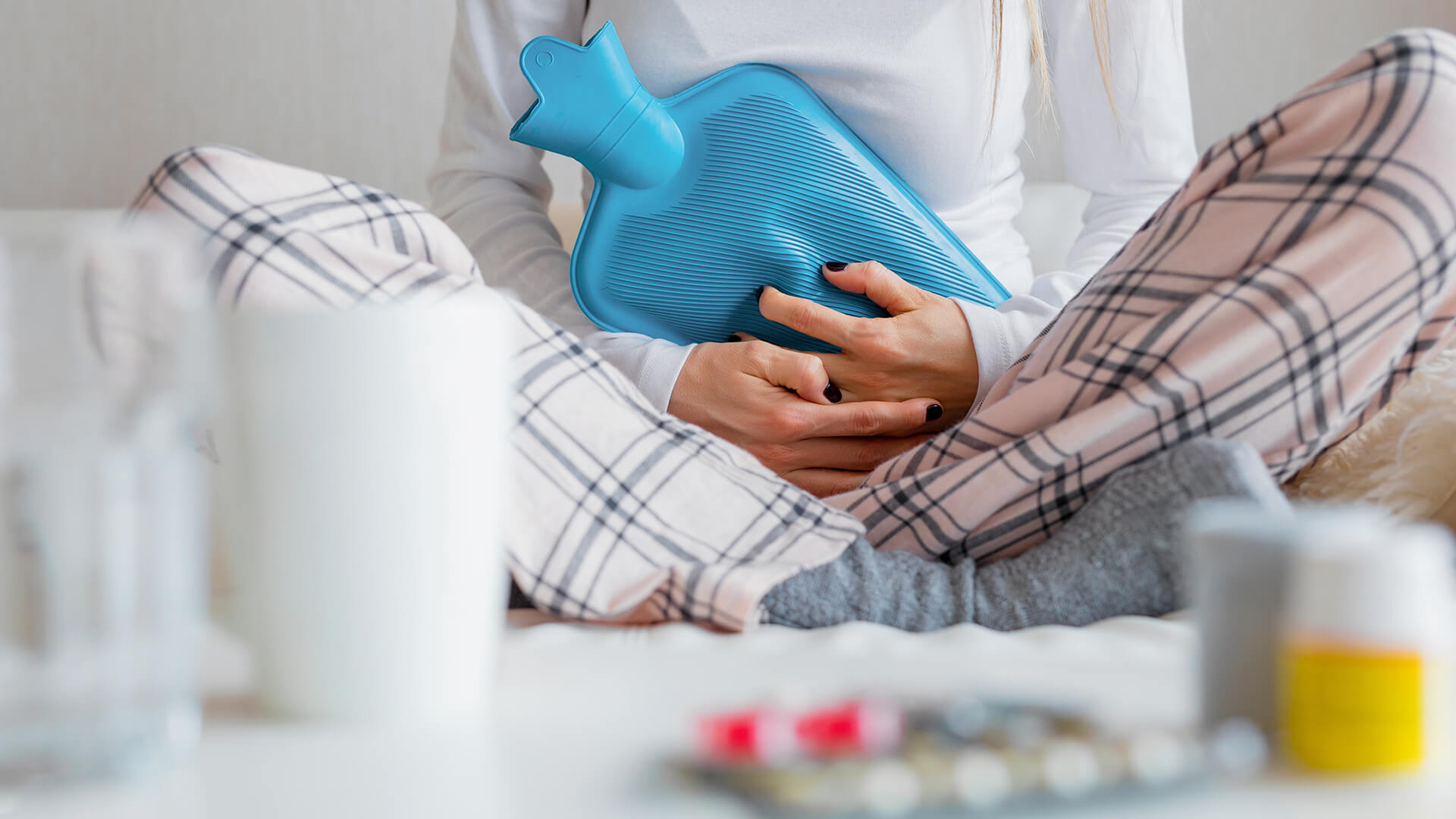
By Harman Bhamra at Express Pharmacy
As many as 90% of women experience symptoms during their period, with some reporting mild discomfort and others experience severe and debilitating pain. As period pain is common and an expected part of the monthly cycle, it can be difficult to know when our symptoms are something to worry about.
Below, Harman Bhamra from Express Pharmacy outlines the most common period symptoms and explain when they could suggest an underlying health condition.
Cramps
Cramps are a frequent symptom of period pain, with stomach cramps being the most common, as during your period your uterus contracts to help get rid of its lining. While a common and expected symptom of a period, stomach cramps can be at best uncomfortable but at worst debilitating. For milder cramps, try taking anti-inflammatory painkillers, such as ibuprofen. Ibuprofen helps reduce the production of prostaglandins and can ever help reduce heavier bleeding.
Another way to curb period cramps is to apply heat onto the source. “Whether it’s a hot water bottle on your stomach, or soaking in a warm bath, heat has been scientifically proven to act as a natural method of pain relief,” Bhamra explains. “Heat works in a similar way to ibuprofen as it reduces inflammation and helps the muscles relax.”
While cramps are common, they should not stop you from living your normal life. If your cramps require days off work, spent in bed or even leave you unable to move or concentrate on anything else, then this could be a sign of something more sinister. Endometriosis is the second most common gynecological condition in the UK and is estimated to affect 1 in 10 women, yet it takes on average 7.5 years to get a diagnosis. “The reason for this long time is because the symptoms are very similar to typical period symptoms, especially tummy and lower back cramps, however endometriosis sufferers experience this much more intensely,” Bhamra explains.
Headaches
Headaches in women, especially migraines are exceptionally common during PMS. “Headaches and migraines are caused by hormone changes within the body as natural estrogen levels drop as the menstruation starts and are commonly known as ‘menstrual migraines,’” Bhamra notes. “The symptoms of menstrual migraines include headache pain and include light sensitivity and dizziness.”
Similarly with cramps, taking anti-inflammatory painkillers like ibuprofen helps reduce the inflamed area and can alleviate migraine symptoms. If your headache reduces your quality of life then you must visit a GP who will be able to prescribe you anti-migraine medications, such as Triptan medicines which reverses the changes in the brain which causes migraines.
Fatigue or trouble sleeping
Fatigue on your period is common as your progesterone levels drop as you begin to bleed. Although common, this can have a knock-on effect on various aspects of your life, especially with your mood. To help sleep at night and reduce fatigue during the day, try and avoid your caffeine consumption, as having caffeine in your system prevents deep sleep.
If you find you are extremely tired particularly during your period but perhaps during your entire menstrual cycle, then it could be a sign of an underlying medical condition. Anemia is an iron deficiency and common with menstruation as heavy periods cause a significant amount of blood loss. “Identify how you feel after sleeping, as many tend to still experience severe exhaustion even after having a full night’s rest,” Bhamra advises. “If you notice you are feeling tired all the time, regardless of what you have done, then try and increase the amount of iron in your diet. Vitamin C, seafood and beans can help boost the amount of iron in your system.”
Breast tenderness
Breasts tend to feel sore and uncomfortable during your period, caused by the significant drop of hormones in your system, in fact breast pain is usually linked to periods. Bhamra advises “to help ease symptoms around this time, take paracetamol or ibuprofen to help ease the breast ache and make sure you wear a properly fitted bra, as ill-fitting bras can worsen pain and encourage neck and shoulder pain with poor posture.”
While tenderness is a common problem, if you notice the skin on your breast has dimpled, or there is a hard lump which does not move around, then you must visit your GP urgently, as this could be a sign of something more serious.
Skin breakouts
As during the menstruation phase your estrogen and progesterone levels drop significantly, triggering your sebaceous glands to produce more sebum, or oil, which can cause more breakouts. “The level of oiliness which your skin experiences can differ as it depends on your skin type,” Bhamra explains. “Those with naturally dry skin may not notice their skin feeling oilier, whereas those with oily skin may feel overwhelmed with how oily their skin becomes.”
Oilier skin during menstruation shouldn’t be much of an issue, as it is causes by the hormonal drop. There are natural lifestyle changes which can help reduce the amount of oil your skin produces, for example limiting your sugar intake has been proven to help reduce acne. You should see a doctor if you experience oily and acne prone skin with other symptoms, such as irregular periods or excessive facial hair as this may be a sign of Polycystic ovary syndrome (PCOS.)
PCOS is a hormonal disorder which causes enlarged ovaries and small cysts to form on the ovaries. While a common disorder, affecting 1 in 10 women in the UK, PCOS can affect fertility if left untreated. If you suspect you may have PCOS, visit a GP who will treat the hormonal imbalance and prescribe you medications which will best suit your symptoms.



















